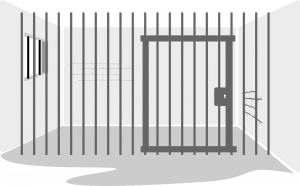
Author: Luis Blanquez
Luis Blanquez is a European Competition Attorney that works with Bona Law.
WHAT IS AN ANTITRUST COMPLIANCE PROGRAM?
An antitrust compliance program is an internal business policy designed by a company to educate directors and employees to avoid risks of anticompetitive conduct.
Companies that conspire with their competitors to fix prices, share markets, allocate customers, production or output limitation; have historically faced severe fines from antitrust enforcement all over the world.
Companies articulating such programs are in the best position to detect and report the existence of unlawful anticompetitive activities, and if necessary, be the first ones to secure corporate leniency from antitrust authorities. This allows them to avoid substantial fines, and in some jurisdictions, such as the US and the UK, even criminal charges.
But not every program ensures compliance. A successful compliance program must alert and educate sales force; issue-spot risks; encourage reporting of anticompetitive issues, and deter risky conduct.
Over the years, antitrust authorities all over the world have published some general guidance creating and managing compliance programs. Even though there are differences between jurisdictions, all of them seem to have the following anchor points in common:
-
No “one size fits all” model: You must tailor your compliance program.
Effective compliance programs require companies to tailor their internal policies according to their particular situation.
A generic out-of-the-box compliance program is not likely to be effective. It is more important that the company conducts an assessment of the particular risk areas involved in its day-to-day business activities, with a specific focus on the structure and previous history of the industry.
Interaction of sales people with other competitors, with close attention to trade association meetings, is also an important point to consider. To illustrate, employees with access to pricing information and business plans are more likely to meet their counterparts from other companies in trade association reunions or industry events.
-
Development of training programs to educate directors and employees.
A company should ensure antitrust compliance training for all executives, managers and employees, especially those with sales and pricing responsibilities.
Genuinely effective compliance requires that companies apply the antitrust policy and training program to their entire organizational structure, preferably in writing. It may take the form of a manual and must be plainly worded in all the working languages of the company, so everyone understands it. The antitrust policy must contain a general description of antitrust law and its purpose, explaining the way the company enforces it, along with highlights of the potential costs of non-compliance.
An effective way to implement an antitrust policy is through a list of “Don’ts”, including illegal conduct such as price-fixing agreements, the exchange of future pricing information, or allocation of production quotas, among other conduct.
You might complement the forbidden conduct with a list of “Red Flags” to identify situations in which antitrust risks may arise (i.e. sales people attending trade associations or industry events).
You might also add a list of “Do’s” because employees are often more receptive to what they can do, rather than what they cannot do.
Finally, companies and their employees should document their antitrust compliance training in writing. This assures that employees take compliance efforts seriously and that antitrust enforcers understand that the company does so too.
Continue reading →

 The Antitrust Attorney Blog
The Antitrust Attorney Blog











